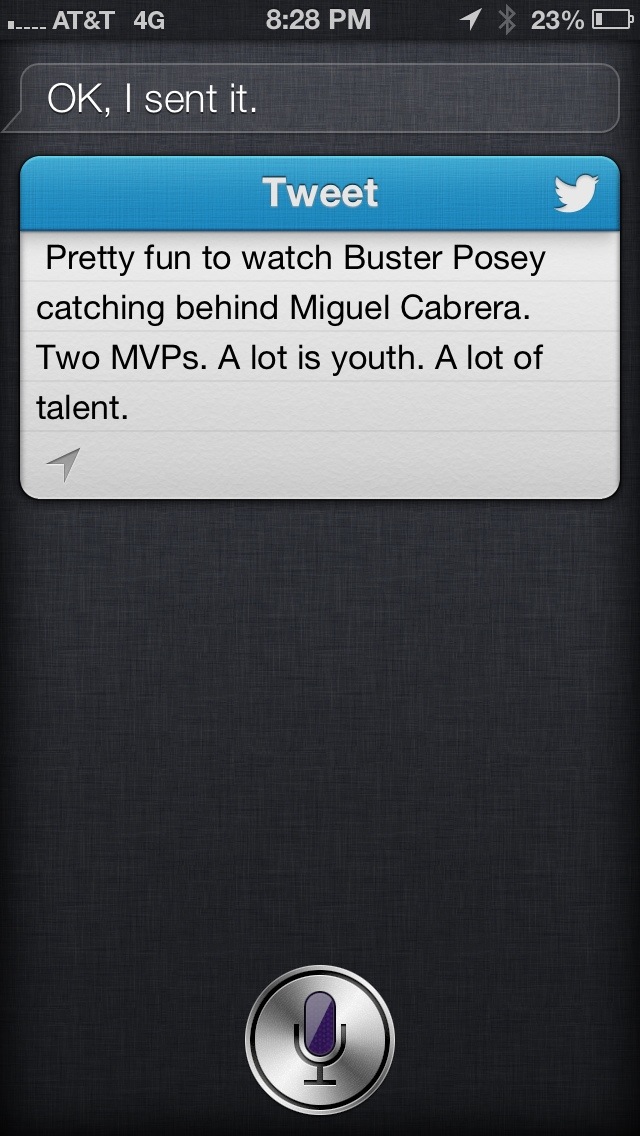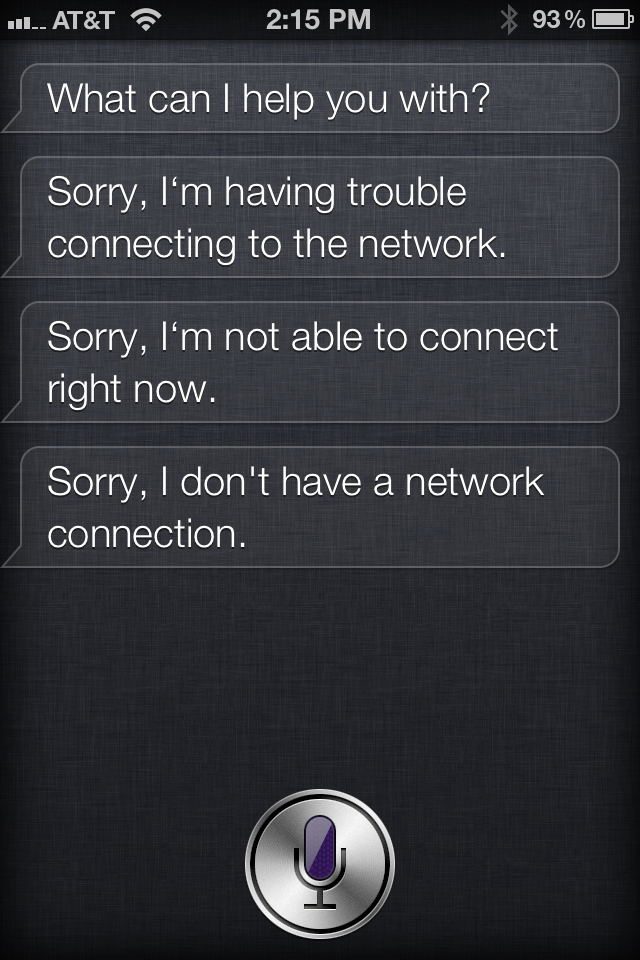I still believe this experience is magical. And as I've written before, I still believe the power of Siri (or Google Voice, Microsoft sync, etc) is dictation.

Siri Dictation: Email, Facebook, Twitter
I love this: Siri driving Twitter, Facebook, etc (I had written about the desire to do this when Siri first arrived). As I have been splitting my time between iOS and Android, I have been using Siri and Google Voice more and more. Siri is better baked into the platform... and therefore sometimes more useful; but Google is faster and often more accurate.
In both cases, I have used them daily / routinely to dictate emails, messages, etc. It takes getting used to: in part because it's a new way of thinking and in part because you need to learn trigger words and pauses.
The next step is for Siri / Google to become responsive and interactive: deliver messages and make commands more natural / conversational.

Siri and Twitter (Facebook and more)
As I have tweeted a few times over the last couple weeks, Siri is a better product in theory than in practice: 'she' simply is too inconsistent and too time intensive to really be worthwhile. The only pieces I find myself regularly using Siri for are sending text messages and location-based searches.
Because Siri does a good job sending SMS's, I figured I'd try sending a Tweet... after all, Twitter is fully integrated into Apple's iOS5. It should work, right? Strangely, it doesn't... and it's a big opportunity for Twitter and Apple. And why not also work with Facebook and other core applications? Or allow those core applications to develop atop / into Siri?
By the way: if you really want to update Twitter (or Facebook) via Siri, you can make it work via some clever workarounds.

Siri, Why Aren't You Connecting?
Speed and computing power are the major iPhone 4S upgrade.But Siri is the real innovation and marketing 'sexiness'. And it should be: It's new. It's has big ambitions. It has bigger potential. And its more innovative than we give credit for.
... But what makes it so ambitious, potentially large and innovative: also makes it flawed (at least today). More often than not, my Siri experience looks a lot like the below screenshot. It is slow, unresponsive and often unable to connect to a network (even when on 3G and/or Wifi).
Daring Fireball explains why this happens and speculates why Apple may have intended it:
"Don’t forget that there’s a server/cloud-based backend that is required for Siri to function. I can’t help but suspect there’s some truth to this tweet from Mark Crump, speculating that Apple might be limiting Siri to the 4S simply to restrict the server load while the service is “beta”. There could be 100 million iOS 5 users by the end of this weekend; there will only be 1 or 2 million iPhone 4S users."
There are benefits to being cloud-based. Namely, Siri is still a beta-product and Apple can continuously roll-out updates and make service improvements without releasing iOS updates. And it makes the product more lightweight... but the downside, of course, is that the network can become over saturated and overweight. Network connections stall and users experience delays... or breaks:

Assistant at Core of iPhone 5
I sometimes share an article on Facebook and Twitter ... and despite not having a ton of commentary to add - think it's worth 're-blogging' (a short snipet and link back). Here is a note from 9to5Mac's "The New iPhone":
"Expect Assistant, 1GB of RAM, the dual-core A5 processor, Nuance speech-to-text, and an 8 megapixel camera to make an incredible iPhone upgrade on October 4th."
Is that enough to get buyers to re-up their contracts?
For me: it's a no brainer if Assistant and speech-to-text work well. Conceptually, they make the phone a more complete, more efficient mobile office... and that's how I use it.
Increased speed. Better camera. Improved form factor (I assume). Those are all nice additions. But Assistant is the big, compelling idea. And it makes the Siri acquisition price-tag well worth it to Apple.

